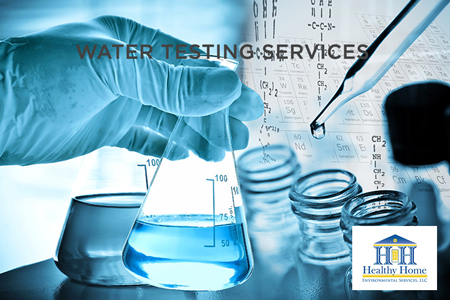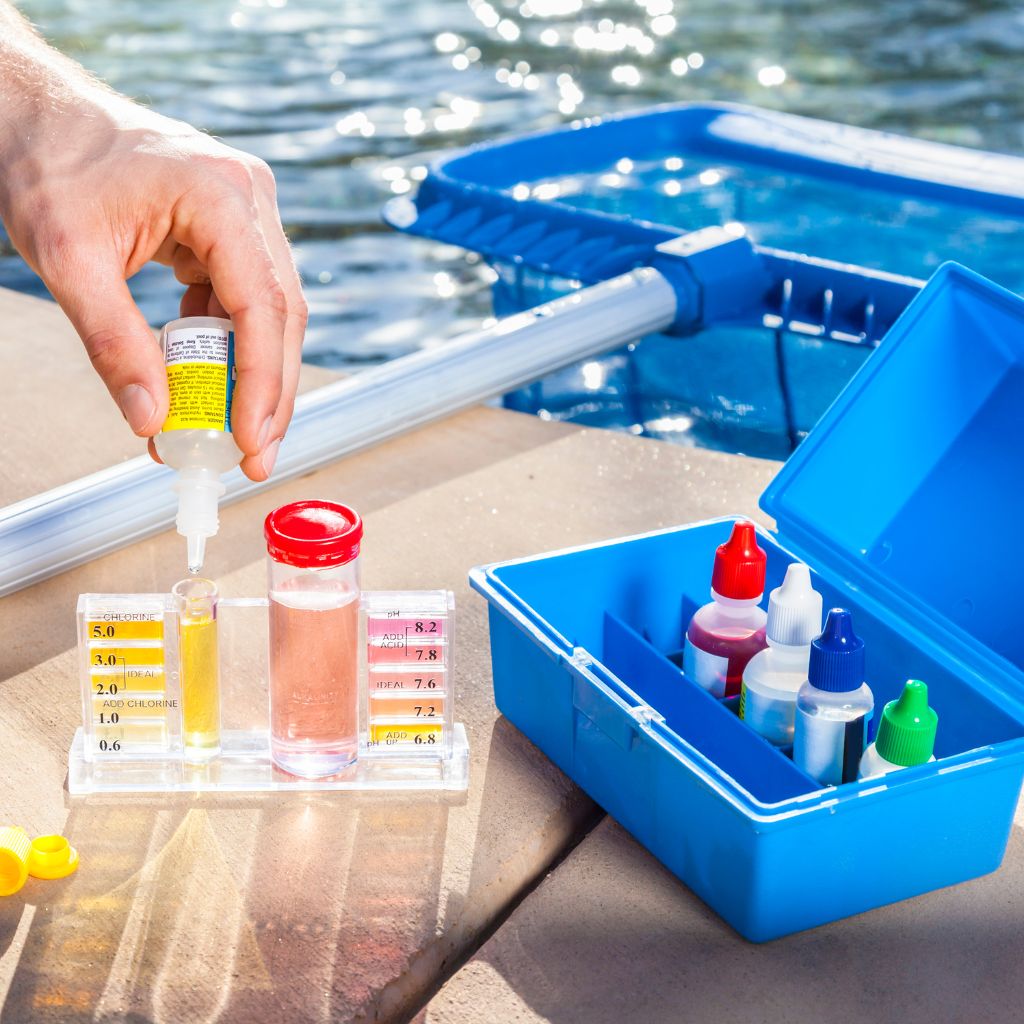Reliable Water Testing Services Near Me: Know What's in Your Water
Reliable Water Testing Services Near Me: Know What's in Your Water
Blog Article
Learn Exactly How Water Screening Can Detect Contaminants and Safeguard Your Household's Health
Comprehending the relevance of water screening is essential for securing your family members's health, as our water system can nurture unseen dangers. From germs to heavy metals, pollutants posture serious risks, frequently undetectable without appropriate analysis. By exploring the technicians of water testing, one can discover the undetectable risks prowling in apparently immaculate water resources. Yet, how do you figure out which examinations are needed for your family, and what steps should be taken when prospective risks are exposed? As we browse these questions, the path to ensuring water safety and a much healthier living setting comes to be more clear.
Value of Water Evaluating
Recognizing the crucial duty water plays in sustaining life, the importance of water screening can not be overemphasized. Water is a fundamental source, crucial for alcohol consumption, cooking, sanitation, and numerous industrial procedures. Its quality directly influences public health and health. Ensuring that water is free from dangerous substances is important for preserving healthy and balanced communities and ecological communities.
Water screening functions as a positive step to determine possible hazards that may jeopardize water high quality. Via systematic analysis, it helps discover physical, chemical, and organic parameters that could position risks to human health and wellness. Normal screening enables the early detection of concerns, facilitating prompt interventions to protect against prevalent contamination and linked wellness troubles.
Moreover, water screening sustains governing conformity, making certain that water service providers meet well established safety and security requirements and guidelines set by governmental authorities. It promotes transparency and responsibility, developing public rely on the water system. In addition, screening offers useful data that notifies water administration methods, enabling lasting use and preservation of this precious resource.
Basically, water testing is a vital device that safeguards public health and wellness, guarantees regulative adherence, and advertises the sustainable administration of water resources. Its value in securing both communities and people can not be taken too lightly.
Usual Water Pollutants
Amongst the different elements that can jeopardize water top quality, typical water contaminants consist of a series of physical, chemical, and biological compounds that present significant threats to human health and the atmosphere. Physical contaminants usually involve sediments or organic products put on hold in water, which can affect clearness and preference. Chemical pollutants encompass a large selection important, consisting of chemicals, herbicides, steels like lead and mercury, and industrial chemicals. These chemicals can infiltrate water products through farming runoff, commercial discharges, or seeping from pipes and storage tanks.
Organic pollutants, largely bacteria, viruses, and protozoa, develop from animal and human waste getting in water supply. Virus such as E. coli, Giardia, and Cryptosporidium are well-known for causing intestinal ailments and can be specifically hazardous to young kids, the elderly, and those with endangered immune systems. Nitrates and nitrites, frequently stemming from fertilizers, pose another health threat, particularly to babies, potentially resulting in conditions like methemoglobinemia or "blue infant syndrome."
Additionally, arising impurities, including drugs and personal treatment products, have actually increased worries because of their perseverance and unknown long-term results. Recognizing these contaminants is crucial for executing effective water therapy strategies and ensuring secure alcohol consumption water.
Just How Water Screening Works
Understanding the spectrum of pollutants in water emphasizes the importance of reliable testing methods to safeguard public health. Water testing is a methodical procedure designed to identify and quantify numerous Full Article contaminations that can present threats to human health and wellness.
Chemical testing typically includes spectrometry or chromatography, both of which can determine and determine certain chemical substances. Furthermore, physical attributes like pH, turbidity, and shade are analyzed to give understanding right into the general high quality of the water.
The accurate techniques used in water screening depend upon the certain impurities of problem and the water's planned use. By consistently using these extensive testing methods, researchers and public health authorities can make sure the safety and high quality of water, thus safeguarding neighborhoods from prospective health hazards.
Selecting the Right Test
How does one figure out the most appropriate water examination for their needs? Choosing the right test involves recognizing both the particular qualities of the water resource and the prospective impurities that might be existing. The initial step is evaluating the water source-- be it metropolitan, well, or surface water-- as each has distinctive risks. Municipal water could require screening for disinfectant results, while well water might require testing for nitrates, bacteria, and hefty metals.
Next, think about environmental elements and recent events. Close-by agricultural tasks could demand screening for herbicides and chemicals, whereas commercial zones might need look for chemical toxins. In addition, any kind of modifications in water taste, odor, or look ought to prompt specific testing for usual impurities like lead, chlorine, or organic microorganisms.
Specialist water testing services offer detailed packages that target a large range of potential impurities. These sets commonly line up with standards set by the Epa (EPA) or neighborhood health and wellness departments. For a more customized technique, seeking advice from a water high quality specialist can supply insights right into which certain tests are needed based upon regional issues and private health requirements, description making certain the defense of your family's health.

Preserving Water Security

Along with testing, proper maintenance of water systems plays an important role. This consists of examining and servicing plumbing systems, tank, and septic tanks to avoid leakages or backflow that could introduce pollutants - Well water testing services. Employing water filtering systems made to resolve details neighborhood concerns can further protect against contaminations, giving an additional layer of defense
Public awareness and education and learning are similarly important in preserving water security. Areas should be informed about prospective dangers related to regional water resources and the necessary actions to alleviate them. Urging public engagement in water safety initiatives fosters a collective duty that enhances general effectiveness.
Eventually, an extensive approach that integrates routine screening, system maintenance, and neighborhood involvement is essential in protecting water top quality. By doing so, families can be ensured of tidy and risk-free water, securing their wellness and well-being.

Verdict
Normal water testing is important for identifying contaminants such as microorganisms, heavy steels, and chemicals that position health threats. By analyzing water examples, unseen threats can be spotted, guaranteeing the stipulation of secure alcohol consumption water.
Recognizing the significance of water testing is important for guarding your family's health, as our water supply can nurture undetected risks.Water testing offers as a positive measure to recognize prospective hazards that might jeopardize water high quality.Furthermore, water screening sustains regulatory conformity, making sure that water service providers fulfill well established safety and security standards and standards set by governmental authorities. Local water may need screening for disinfectant by-products, while well water may require screening for nitrates, bacteria, and important site heavy metals.
Routine water screening is a crucial part in keeping the high quality of water sources, making it possible for prompt interventions before contaminants reach dangerous degrees.
Report this page